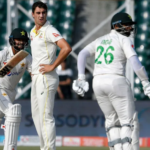Introduction to Iran’s Soccer Legacy
Step onto the pitch and prepare for a journey through time as we delve into the captivating world of Iranian soccer. With a rich history that spans decades, Iran has left an indelible mark on the global stage, particularly in its participation in the prestigious FIFA World Cup. From heart-stopping goals to unforgettable matches, Iranian teams have showcased their prowess and passion for the beautiful game.
Join us as we uncover Iran’s soccer legacy, relive standout moments, celebrate iconic players, and examine how this sport has shaped Iranian culture and society. Get ready to be captivated by tales of triumphs and tribulations on football’s grandest stage – all centered around one nation’s undying love affair with soccer.
History of Iran’s Participation in the FIFA World Cup
Iran has a rich history when it comes to participating in the FIFA World Cup. Since their first appearance in 1978, Iran’s national soccer team has showcased their skills and passion on the global stage. Although they have yet to win the tournament, Iran’s performance over the years deserves recognition.
In their debut World Cup appearance in Argentina, Iran faced tough competition but managed to secure a draw against Scotland. This was a significant achievement for an underdog team. Four years later, they returned with even greater determination and earned another draw against Cameroon.
One of Iran’s standout moments came during the 1998 tournament held in France. They stunned everyone by defeating the United States 2-1 in a highly anticipated match known as the “Diplomatic Derby.” This victory symbolized more than just sporting success; it represented overcoming political tensions between both nations.
Another memorable player from Iranian World Cup history is Ali Daei, who holds the record for most international goals scored by any player. With his remarkable talent and leadership on and off the field, Daei became an inspiration for aspiring young footballers in Iran.
Despite these accomplishments, Iranian teams have faced numerous challenges throughout their World Cup journey. Sanctions imposed on Iran at times affected funding and limited access to resources necessary for training and development programs. However, despite these obstacles, Iranians continue to display resilience and determination.
Soccer holds immense importance within Iranian culture and society. It brings people together regardless of age or background – whether watching games at home or gathering around public screens in parks or stadiums adorned with flags representing pride for one’s country.
Looking ahead, there is much anticipation surrounding Iran’s future performances at FIFA World Cups. With ongoing efforts to develop young talent through grassroots initiatives combined with increased investment into academies and infrastructure improvements across the nation’s soccer facilities – hope remains high that we will witness more exceptional displays from this Middle Eastern powerhouse soon!
Remembering past achievements while remaining optimistic about the future is essential for Iran’s national soccer team.
Standout Moments and Players in Iranian World Cup History
Over the years, Iran has had its fair share of memorable moments and talented players on the grand stage of the FIFA World Cup. One standout moment that will forever be etched in the memories of Iranian soccer fans is their victory against the United States in 1998. In a match filled with political tension, both on and off the field, Iran emerged victorious with a 2-1 win.
Another notable moment was during the 2014 World Cup when Iran faced off against Argentina. Despite losing 1-0 to Lionel Messi’s brilliance, it was goalkeeper Alireza Haghighi who stole the show with his incredible saves throughout the game. His performance garnered praise from football pundits around the world.
When discussing standout players, one cannot overlook Ali Daei, who holds not only an impressive record for being international football’s all-time leading goalscorer but also captained Iran during two consecutive World Cups (1998 and 2006). Known for his clinical finishing ability and leadership skills, Daei remains an icon in Iranian soccer history.
In more recent times, Sardar Azmoun has made a name for himself as one of Iran’s most promising talents. At just 26 years old, Azmoun has already represented his country at two World Cups (2014 and 2018) and continues to impress with his goal-scoring prowess.
These standout moments and players are testaments to Iran’s resilience and talent on the global stage of soccer. While they may have faced challenges along their journey, these achievements serve as inspiration for future generations of Iranian athletes striving to make their mark on world football.
Challenges and Obstacles Faced by Iranian Soccer Teams in the World Cup
Challenges and obstacles are an inevitable part of any team’s journey in the FIFA World Cup, and Iranian soccer teams have certainly faced their fair share. From facing formidable opponents to dealing with external factors, Iran has had to overcome numerous challenges on the world stage.
One significant obstacle is the level of competition that Iran faces in the World Cup. In a tournament where the best teams from around the globe compete, it is no easy feat for Iran to match up against football powerhouses such as Brazil or Germany. The difference in resources, player development systems, and overall infrastructure between these nations can pose a considerable challenge for Iranian teams.
Another challenge lies in navigating through difficult group stages. Being drawn into groups with strong teams increases the difficulty level for Iran. It often means facing more experienced sides who have a history of success at previous tournaments. This puts additional pressure on Iranian players to perform at their absolute best.
Moreover, geopolitical tensions can also impact Iranian soccer teams’ performances at international competitions. Sanctions and travel restrictions imposed on Iran by certain countries may hinder team preparations and create logistical difficulties when traveling abroad for matches or training camps.
In addition to external factors, internal issues within the national soccer federation have also posed challenges for Iranian teams over time. Political interference or disputes within management structures can disrupt team cohesion and affect overall performance on the field.
Cultural differences can present obstacles as well. Soccer is deeply ingrained in Persian culture; however, certain aspects of Western-style play might not align completely with traditional styles favored by Iranians. Balancing between maintaining cultural identity while adapting to modern tactics employed by other teams can be tricky.
Despite these challenges faced by Iranian soccer teams at past World Cups, they’ve shown resilience and determination on multiple occasions. While each tournament presents its unique set of hurdles, overcoming them is a testament to both individual talent and collective effort displayed by Iran’s footballers throughout history.
Impact of Soccer on Iranian Culture and Society
Soccer, or football as it is known in Iran, holds a special place in the hearts of Iranians and has made a significant impact on their culture and society. From crowded stadiums to passionate conversations at tea houses, the sport has become woven into the fabric of everyday life.
In Iran, soccer acts as a unifying force that brings people from different backgrounds together. Regardless of age, gender, or social status, everyone can rally behind their favorite team with fervor and enthusiasm. It creates a sense of belonging and camaraderie among fans who share a common passion for the game.
Furthermore, soccer plays an influential role in shaping Iranian identity on both national and international levels. The success of Iranian teams at the FIFA World Cup showcases the country’s talent and skill to the world while instilling pride within its citizens. It serves as a source of inspiration for young aspiring athletes who dream of representing their nation someday.
Beyond sportsmanship and athleticism, soccer also fosters important values such as teamwork, discipline, perseverance, and fair play within Iranian society. These qualities extend beyond the field into various aspects of life including education, work environments, and relationships with others.
Moreover, the popularity of soccer has led to numerous grassroots initiatives aimed at promoting physical fitness, healthy living, and community engagement.
Local clubs are formed across cities where children learn not only how to kick a ball but also develop essential life skills through training sessions and friendly matches.
Additionally, the influence of soccer can be seen in various forms of art and entertainment.
Iranian cinema often depicts stories centered around the sport while musicians compose anthems that celebrate victories or express solidarity with players during difficult times.
Overall,
soccer’s impact on Iranian culture cannot be underestimated.
It transcends boundaries, bridges divides, and ignites passions like no other sport.
As long as there are men kicking balls across green fields in Iran, this beloved game will continue to shape and inspire generations to come.
Looking Ahead: Predictions for Iran’s Future at the FIFA World Cup
As Iran continues to make its mark on the global soccer stage, fans and analysts alike are eager to predict what the future holds for the Iranian national team at the FIFA World Cup. With each tournament, Iran has shown steady improvement and a growing confidence that could translate into even greater success in years to come.
One of the key factors contributing to this optimism is Iran’s strong pipeline of talented young players. The country boasts a thriving youth development system that has consistently produced gifted athletes who have gone on to represent their nation with pride. These rising stars, combined with experienced veterans, form a formidable squad capable of competing against some of the world’s top teams.
Another promising aspect is Iran’s growing international exposure and experience. Over time, Iranian players have gained invaluable knowledge from competing in prestigious leagues around the world. This exposure not only improves their skills but also enhances their understanding of different playing styles and strategies employed by top-tier teams.
Additionally, it is essential to acknowledge Team Melli’s unwavering determination and resilience on display during past tournaments. Despite facing numerous challenges both on and off the field, they have consistently demonstrated great spirit and unity as they strive for success against more established footballing nations.
Of course, predictions must be approached cautiously as no outcome can ever be guaranteed in such a highly competitive event like the World Cup. However, there is reason to believe that if Iran continues along its current trajectory – investing in player development programs while fostering cooperation between clubs domestically – we may witness even more impressive performances from Team Melli in future editions of this illustrious tournament.
In conclusion (as requested), while predicting specific outcomes can be challenging given various factors at play during each World Cup edition, all signs point towards an increasingly bright future for Iranian soccer internationally.
Conclusion
Iran’s soccer legacy at the FIFA World Cup is undeniably rich and full of moments that have left a lasting mark on the tournament’s history. From their first appearance in 1978 to their most recent campaign in 2018, Iranian teams have showcased both skill and determination on the world stage.
Throughout the years, Iran has faced numerous challenges and obstacles, including political tensions, economic constraints, and limited resources. However, these hardships have only served to strengthen their resolve and passion for the game. Iranian players such as Ali Daei and Mehdi Mahdavikia have become household names not just in Iran but also among football enthusiasts worldwide.
Soccer holds a special place within Iranian culture and society. It serves as a unifying force that brings people together regardless of social or political differences. The sport has provided Iranians with an avenue for expressing national pride while also transcending borders through friendly competition with other nations.
Looking ahead to future World Cups, there is much anticipation surrounding Iran’s performance. With ongoing efforts to develop youth talent and improve infrastructure within domestic leagues, it is hoped that Iran will continue to make strides towards becoming a formidable force in international soccer.








